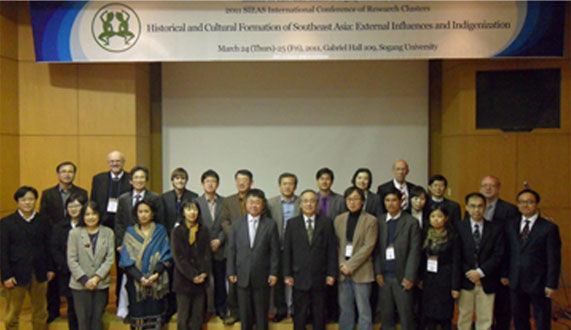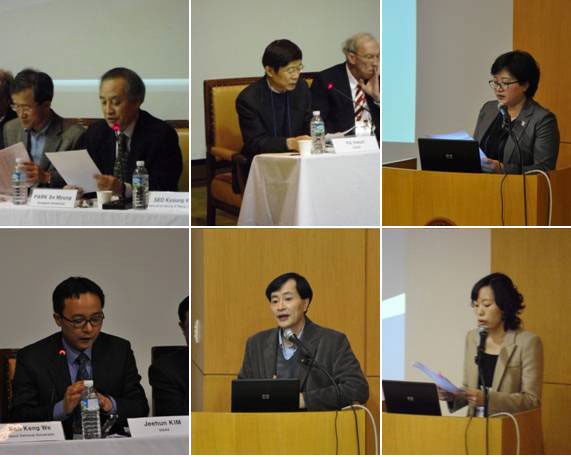· Overview
Formation of Southeast Asia: External Influences and Their Localization
This cluster investigates how external influences have arrived in Southeast Asia and were incorporated and transformed in the region. This research theme aims to challenge the previous perception that Southeast Asian history and culture presented merely a small tradition, obscured in the realms of the enormous civilizations of India, China, or the West. In order to correct this view and find what genuinely constitutes Southeast Asia, this research project will deal with two phases in Southeast Asian history from the classical to the present:
· The first phase refers to the period when Indian, Sino, and Islamic influences were the dominant external forces, which influenced the transformation of Southeast Asian societies.
· The second phase began when more recent colonial (European and Japanese) and contemporary influences redirected social dynamics in the region.
The activities of the cluster will include various research sub-themes. Regarding the early period, some cluster members will examine how external influences from the Middle-East, India, and China were introduced and syncretized with local religions, myths, political systems, legal systems, concepts of borders, and cultural heritage. Some scholars may cover how religious systems, such as Islamic law, Christian values, Confucian philosophy, or Indic narratives were interpreted or applied in a different manner in in varying regions.· The second phase began when more recent colonial (European and Japanese) and contemporary influences redirected social dynamics in the region.
Regarding the colonial and modern periods, scholars will deal with the legacies of colonial and modern influences on political, economic, religious, or cultural spheres. For instance, some may explore how colonial legacies were reflected in school textbooks, legal codes, religions, administrative systems, or other cultural forms. In addition, others may deal with more recent issues, such as the impact of the Korean Wave or Japanese contemporary pop-culture in Southeast Asia. The examples mentioned above are not exclusive but illustrative, and researchers can choose any topic under the broad theme of the external influences in Southeast Asia and their indigenization.
· SCHEDULE & DATES
* Commencement of research: March 1, 2010
* Deadline or paper submission: March 10, 2011.
* Venue and conference date: March 24-25 (Thurs-Fri), 2011 (Seoul, Korea)
* Deadline or paper submission: March 10, 2011.
* Venue and conference date: March 24-25 (Thurs-Fri), 2011 (Seoul, Korea)
· PARTICIPANTS
Participants in the research cluster will consist of professors and research professors of SIEAS and prominent and distinguished academics from Korea and abroad.

Presenters

